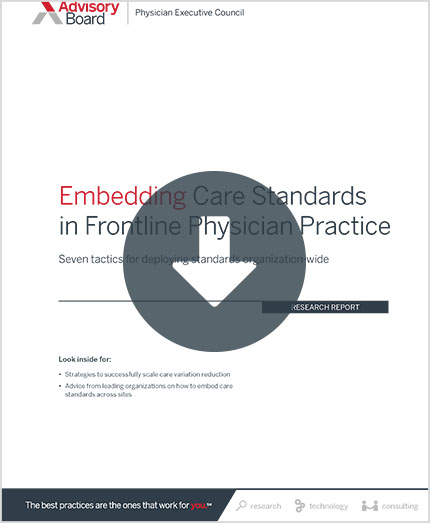Auto logout in seconds.
Continue LogoutSome doctors who examined immigrants while working for U.S. Citizenship and Immigration Services (USCIS) had criminal records or histories of patient abuse, according to a report released Friday by the Department of Homeland Security's (DOH) Office of Inspector General (OIG).
Report details
According to the report, USCIS "is responsible for verifying that foreign nationals applying for lawful permanent resident status meet health-related standards for admissibility." DOH's OIG said it audited USCIS to determine whether the agency "has controls in place to ensure it complies with [those] standards." For the audit, investigators visited USCIS sites and reviewed records from October 2013 to June 2017.
Findings
Overall, DOH's OIG found that USCIS "has inadequate controls for verifying that foreign nationals seeking lawful permanent residence status meet health-related standards for admissibility" because the agency:
- Accepted "incomplete and inaccurate" medical forms on foreign nationals; and
- Did not properly vet the physicians, called "civil surgeons," it uses to perform medical examinations of foreign nationals.
Specifically, the report stated that USCIS had used "physicians with a history of patient abuse or a criminal record" as civil surgeons. For instance, DOH's OIG found that USCIS had used physicians that had reported histories of or had faced criminal charges in relation to:
- Diluting vaccinations;
- Falsifying medical records;
- Fraud;
- Hiring a hit man to kill a dissatisfied patient;
- Sexual misconduct with patients; and
- Other instances of patient abuse and neglect.
DOH's OIG found that USCIS "does not have policies to ensure only suitable physicians are designated" as civil surgeons. According to the report, USCIS officers are required to check the statuses of civil surgeons' medical licenses, but the officials are not required to check a civil surgeon's disciplinary history. In addition, DOH's OIG found that some civil surgeons in 2014 had been grandfathered into a new system even though their medical licenses had expired.
According to the report, 132 of USCIS' 5,569 active civil surgeons could pose safety or health risks, including 11 who had been barred from participating in federal health care programs and 121 who had been disciplined by state medical boards. DOH's OIG concluded that the deficiencies might "be placing foreign nationals at risk of abuse by physicians performing medical examinations."
DOH's OIG also found that USCIS officers in some instances "accept[ed] incomplete and inaccurate [medical] forms" on foreign nationals. Investigators reviewed 151 files of foreign nationals who obtained permanent resident status from USCIS and found errors in 44 of the medical forms in those files. The report stated that those errors occurred "because USCIS did not adequately train" its officers "on proper review of medical forms and USCIS did not enforce its existing policy, which requires [officers] to return inaccurate medical forms to the foreign national for corrective action."
In addition, DOH's OIG said USCIS did not review or track errors on medical forms to assess whether civil surgeons were complying with technical instructions from CDC. DOH's OIG wrote, "As a result, USCIS cannot be certain the civil surgeons actually administered all required tests and vaccinations and may have granted lawful permanent residence status to medically inadmissible foreign nationals who could pose a health risk to the U.S. population."
According to the Associated Press, the report did not include any specific indications that a foreign national was abused or that a foreign national with an illness was permitted residence in the United States.
Recommendations
DOH's OIG made eight recommendations to help USCIS improve its "selection and oversight of physicians and its review of foreign national's medical forms." Those recommendations included that USCIS officials:
- Bolster the agency's training program on health admissibility;
- Create a program to train personnel who adjudicate civil surgeon applications and implement quality control reviews of application decisions;
- Create a quality control program to ensure USCIS officers do not accept incomplete or inaccurate medical forms, as well as a process to track medical form errors;
- Create tighter ineligibility requirements for civil surgeons, which could include those used by HHS' OIG, and implement a more rigorous vetting process of physicians applying to be civil surgeons, as well as acting civil surgeons; and
- Review grandfathered civil surgeons to ensure they still meet eligibility requirements and USCIS maintain all necessary documents.
USCIS responds
DOH's OIG in the report stated that USCIS "concurred" with its eight recommendations and described the steps the agency would take to implement them.
For instance, USCIS said it would develop and implement stricter eligibility requirements and a more stringent vetting process for its civil surgeons. The agency also said it would review records for its active and grandfathered civil surgeons by March 31, 2019.
DOH's OIG in the report stated that it "consider[s] seven of [its] recommendations resolved, and one recommendation is unresolved" because USCIS is "reconsidering options for corrective action that were discussed after the draft report was issued." However, DOH's OIG wrote that all of its recommendations "remain open" (Ingber, NPR, 9/25; Long, AP/Sacramento Bee, 9/25; DOH OIG report, 9/21).
Don't miss out on the latest Advisory Board insights
Create your free account to access 1 resource, including the latest research and webinars.
Want access without creating an account?
You have 1 free members-only resource remaining this month.
1 free members-only resources remaining
1 free members-only resources remaining
You've reached your limit of free insights
Become a member to access all of Advisory Board's resources, events, and experts
Never miss out on the latest innovative health care content tailored to you.
Benefits include:
You've reached your limit of free insights
Become a member to access all of Advisory Board's resources, events, and experts
Never miss out on the latest innovative health care content tailored to you.
Benefits include:
This content is available through your Curated Research partnership with Advisory Board. Click on ‘view this resource’ to read the full piece
Email ask@advisory.com to learn more
Click on ‘Become a Member’ to learn about the benefits of a Full-Access partnership with Advisory Board
Never miss out on the latest innovative health care content tailored to you.
Benefits Include:
This is for members only. Learn more.
Click on ‘Become a Member’ to learn about the benefits of a Full-Access partnership with Advisory Board
Never miss out on the latest innovative health care content tailored to you.



